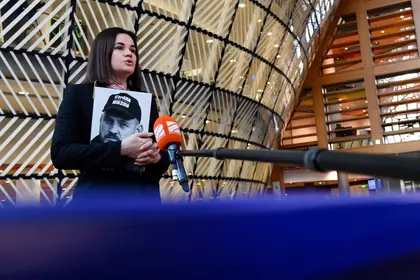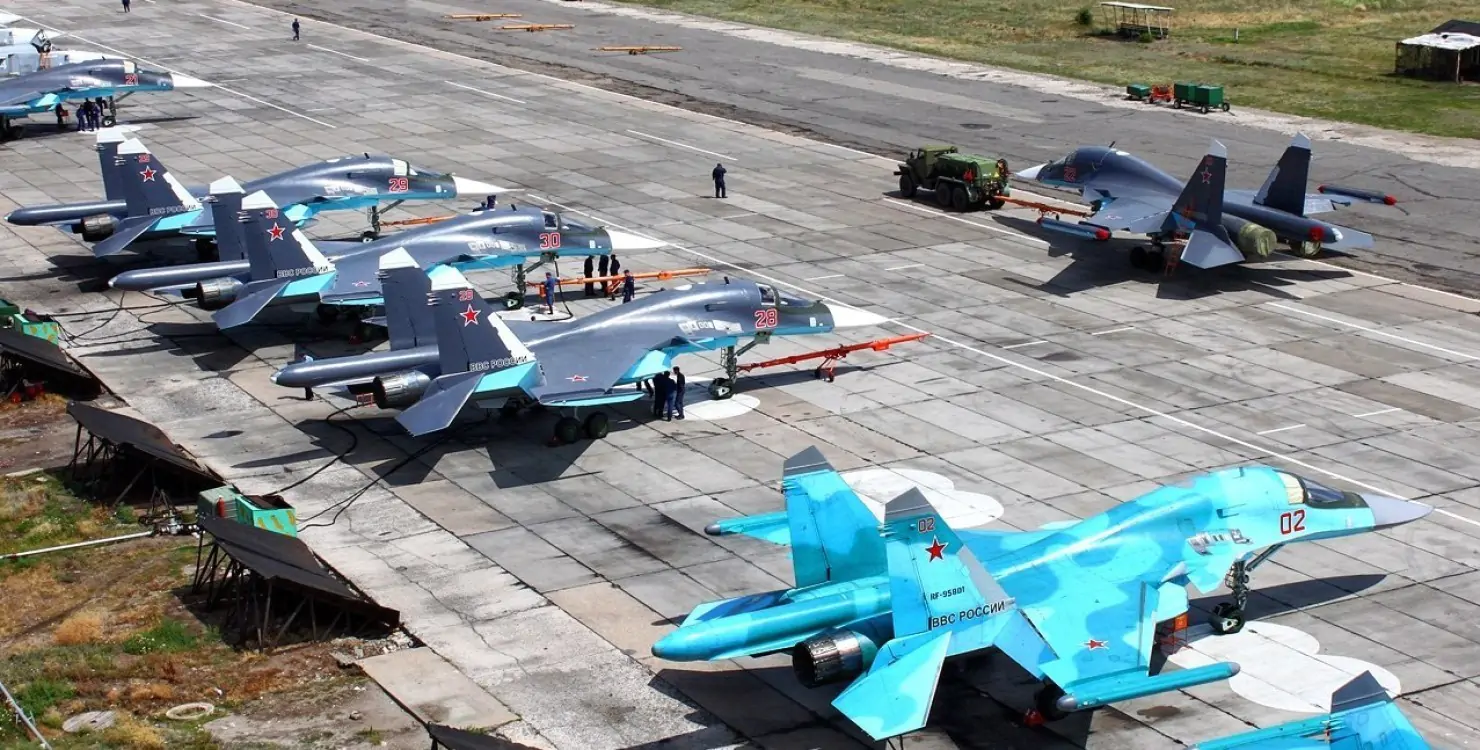Since the Belarusian presidential elections in 2020, the Lukashenko regime has conducted an oppressive crackdown of the Belarusian democratic forces. Currently, 1486 Belarusians are considered political prisoners, although this number could be as high as 5000.
Two and a half years after the start of widespread protests, and citing inadequate action by Belarusian opposition leaders themselves, family members of prominent political prisoners have drafted a petition directed towards leaders of Western nations that calls for a strategy on prisoner exchanges. However, the proposed solution appears in conflict with the existing strategies of the opposition movement led by Sviatlana Tsikhanouskaya, and could potentially compromise Ukraine’s defense.
Tatsiana Khomich, sister of Maria Kolesnikova, Alexander Loiko, husband of journalist Irina Slavnikova, and Sviatlana Matskevich, wife of philosopher Vladimir Matskevich, lead the petition that calls for a “negotiation processes and both public and non-public efforts”.
The petition also appeals to Western politicians and cites Ukrainian prisoner exchanges as an example of a possible means to free Belarusians held in captivity for political reasons.
With the imminent creation of the Commission on Political Prisoners in the Belarus Coordination Council, in which Khomich and Matskevich are expected to take on leading roles, a prominent critic of the Belarusian regime, political activist and blogger, Aliaksandr Kabanau, speaks out against the tactics suggested by the petition and its authors.

Lukashenko Reviews Possible Belarus ‘Oreshnik’ Ballistic Missile Sites
Aliaksandr Kabanau was a Brest based blogger, working closely with Siarhiej Tsikhanouski, and was press secretary of Sviatlana Tsikhanouskaya after the arrest of her husband.
Kabanau was arrested for politically motivated reasons in June 2020 and served two and half years in prison. After his flight from Belarus, in the winter of 2023, Kabanau became a member of the Belarus Coordination Council and is leading the work on their approach to freeing political prisoners.
Kabanau believes that the Coordination Council has a role to play in safeguarding, and even returning political prisoners, but is apprehensive about the cacophony of opinions within the Belarusian opposition.
“It’s important not to interfere with each other,” Kabanau said. “At the moment, when it comes to sanctions and political prisoners, there are different positions that are not coordinated. If all these positions were to align, of course, that can bring change - if they act as a united front.”
With first-hand experience of time behind bars, and scars on his arms from an attempted suicide to prove it, Kabanau takes a firm stand against any negotiations with Lukashenko, which could lead to easing pressing on the Belarusian dictator.
“I can voice my personal position - Lukashenka is an international criminal. You can't bargain with criminals,” Kabanau said. “In my opinion, one can only talk to such people from a position of strength, and this applies to sanctions. Otherwise, these people do not understand normal language. There is direct evidence of this, from 2020. People came out with white armbands, with flowers, and what did they get in return? They got rubber bullets, beatings, rape and everything else. How can you talk to these people about anything? They are completely insane.”
Reading between the lines of the Khomich petition appeal, it also becomes abundantly clear that the proposed negotiations do not advocate for a release of all prisoners. Key names, presumably the relatives of the petition signatories, are to be prioritised.
This approach, assigning value to life and freedom based on subjective notions, will be especially damaging to those behind bars in Belarus, as they witness cellmates being released based on their connections and media profile. As a former prisoner himself, Kabanau speaks out against this strategy.
“The value of Viktar Babaryka or Uladzimir Matskevich or bloggers, Siarhiej Tsikhanouski and Uladzimir Tsyganovich, is exactly the same as the value of an absolutely unknown person. These are just people,” Kabanau said. “To say that it is more important for us to release these now, and those later - is incorrect. Everyone has relatives, children, family. … There can be only one question - if someone's situation is extremely bad, that is, in case of serious illness, or old age, [they get prioritised]. Every day spent behind bars affects moral and physical health, and therefore only in this context can we consider this issue.”
Going beyond prioritising prisoners based on perceived value, the petitioner's appeal uses Ukraine as an example, which could be forgiven for being misguided if not for its insensitivity. It states: “We all can see it in Ukraine: during the conflict, hundreds of Ukrainians were released from enemy captivity as a result of negotiations and exchanges. Negotiations on the release of prisoners had no effect on Ukraine's determination to fight the aggressor.”
On the one hand, comparing the harsh treatment of Belarusian political prisoners to the tales of Ukrainian prisoners of war, civilians and children held in Russia is inappropriate. On the other, comparing the situations of Ukrainian and Belarusian prisoners can easily be misconstrued as manipulation of the war in Ukraine.
There also remains the question of exchange formats. Undoubtedly, Belarusian political prisoners deserve freedom, but doing so on the basis of an exchange leaves the question of who to exchange for.
Kabanau adds: “I think that this is an incorrect comparison. Ukrainians have someone to change for. If we arrest someone in Europe or in America and exchange - this is also extremely inappropriate on our part. Then we are no different to Lukashenka and his henchmen. There must be a different concept and a different approach.”
Lacking individuals of value to Lukashenko in Western prisons, it is easy to envisage suggestions of prisoner exchanges for lifting sanctions and pressures on Belarus. With Lukashenko’s role in the invasion of Ukraine beyond doubt, and active participation of Belarusian armed forces in the invasion becoming more evident, any easing of sanctions cannot be treated as anything but a pro-Russian position. Reducing sanctions would allow Lukashenko to get away with mistreatment of his own people, actively supporting the invasion of Ukraine, and it would open supply of sanctioned goods to Russia via the open border between the two states.
The views expressed in this opinion article are the author’s and not necessarily those of Kyiv Post.
You can also highlight the text and press Ctrl + Enter






